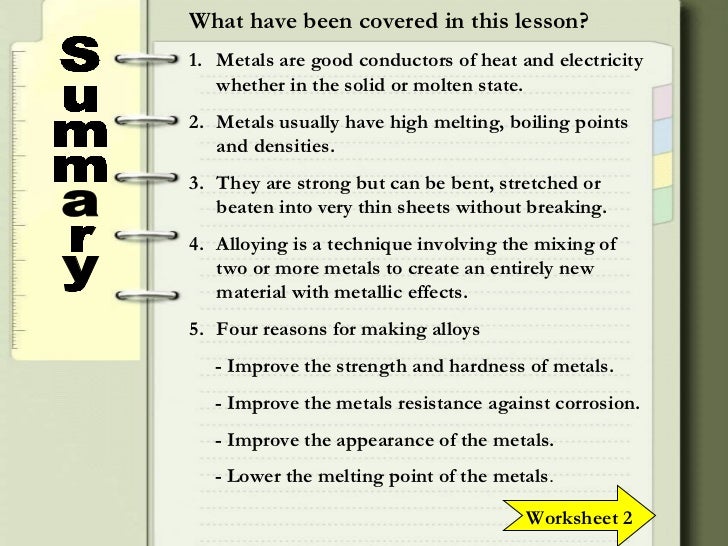How do you extract dna
How Do You Extract Dna. The positively charged sodium ions in the salt help protect the negatively charged phosphate groups that run along the backbone of the dna. However they can be expensive to use routinely so many labs have their own methods for dna extraction. If you are not able to carry out this experiment read through the details below and try to work out why the procedure works in the way it does a few questions have been posted at the end of the method to help you think about this. This can be done by grinding a piece of tissue in a blender.
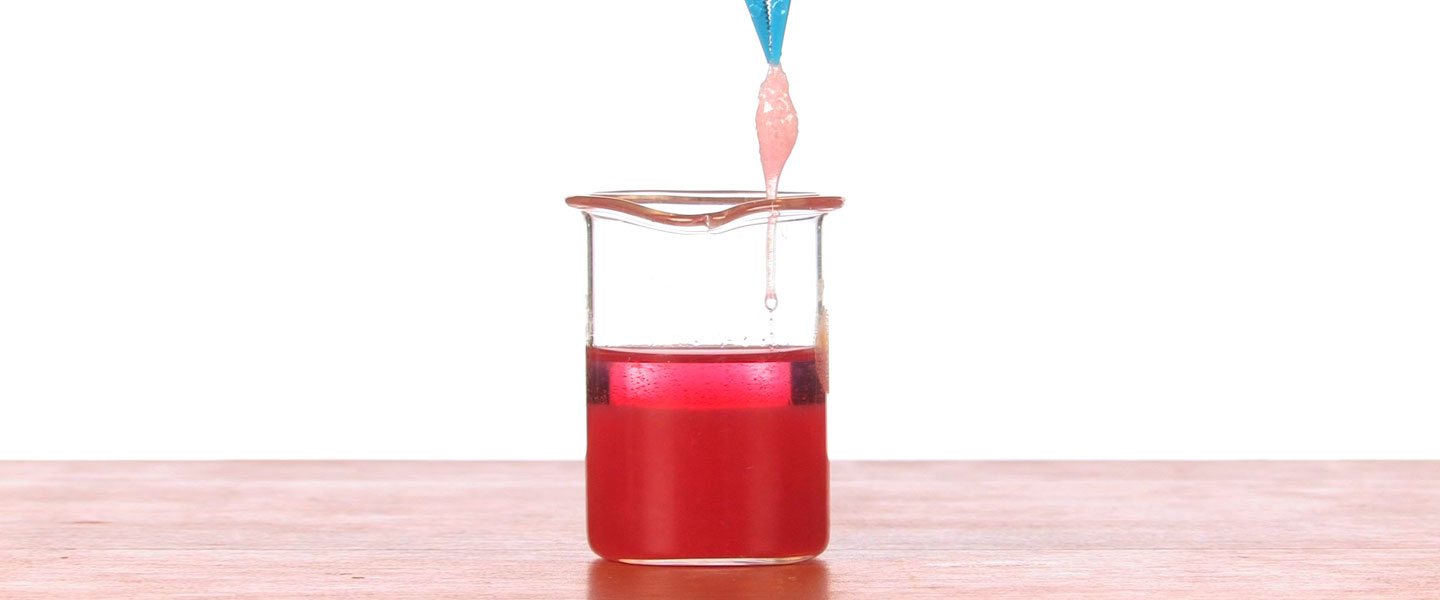 Strawberry Dna Food Science Experiments Steve Spangler Science From stevespanglerscience.com
Strawberry Dna Food Science Experiments Steve Spangler Science From stevespanglerscience.com
A detergent is. The positively charged sodium ions in the salt help protect the negatively charged phosphate groups that run along the backbone of the dna. The cells in a sample are separated from each other often by a physical means such as grinding or vortexing and put into a solution containing salt. However they can be expensive to use routinely so many labs have their own methods for dna extraction. After the cells have broken open a salt solution such as nacl and a detergent solution containing the compound sds sodiumdodecyl sulfate is added. Perform the dna extraction blend together 100 ml of dna source 1 ml of salt and 200 ml of cold water.
What does dna extraction involve.
The positively charged sodium ions in the salt help protect the negatively charged phosphate groups that run along the backbone of the dna. You ll be mixing salt into water because salt provides a rough granular texture to help collect cells from your mouth. However they can be expensive to use routinely so many labs have their own methods for dna extraction. A detergent is. The dna is insoluble in the alcohol and will come out of solution and the alcohol serves as a wash to remove the salt previously added. This takes about 15 seconds on high setting.
 Source: pinterest.com
Source: pinterest.com
The positively charged sodium ions in the salt help protect the negatively charged phosphate groups that run along the backbone of the dna. What does dna extraction involve. Once this sample arrives at the lab technicians extract the dna from this sample. After isolation the dna is dissolved in a slightly alkaline buffer usually in a te buffer or in ultra pure water. Known as dna extraction this is a process by which dna is isolated from the nucleus of cells.
 Source: pinterest.com
Source: pinterest.com
Dna can be extracted from many types of cells. To understand the important principles behind this step it is not essential to do this experiment at this stage or in fact at all. This takes about 15 seconds on high setting. After isolation the dna is dissolved in a slightly alkaline buffer usually in a te buffer or in ultra pure water. Known as dna extraction this is a process by which dna is isolated from the nucleus of cells.
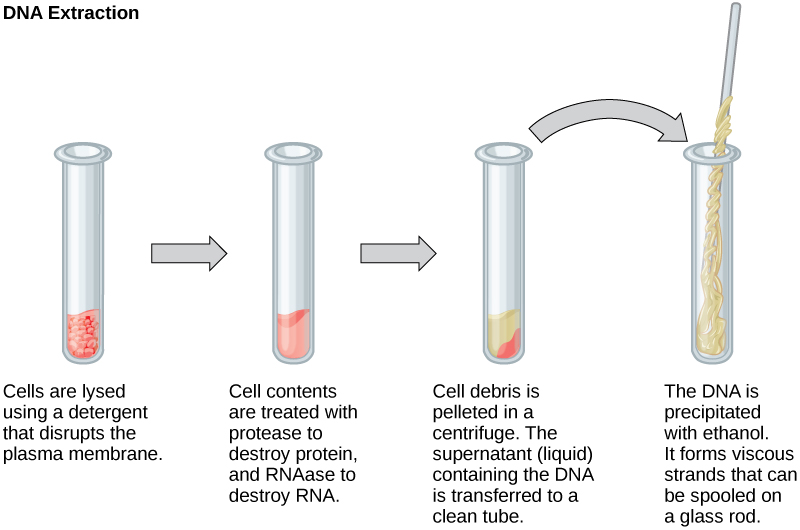 Source: pediaa.com
Source: pediaa.com
To understand the important principles behind this step it is not essential to do this experiment at this stage or in fact at all. Once this sample arrives at the lab technicians extract the dna from this sample. This can be done by grinding a piece of tissue in a blender. The positively charged sodium ions in the salt help protect the negatively charged phosphate groups that run along the backbone of the dna. However they can be expensive to use routinely so many labs have their own methods for dna extraction.
 Source: slideplayer.com
Source: slideplayer.com
After isolation the dna is dissolved in a slightly alkaline buffer usually in a te buffer or in ultra pure water. The dna will be found at the interface between the two phases. To understand the important principles behind this step it is not essential to do this experiment at this stage or in fact at all. To extract your dna from saliva you ll need to create a mouth rinse first. Dna can be extracted from many types of cells.
 Source: stevespanglerscience.com
Source: stevespanglerscience.com
If you are not able to carry out this experiment read through the details below and try to work out why the procedure works in the way it does a few questions have been posted at the end of the method to help you think about this. The positively charged sodium ions in the salt help protect the negatively charged phosphate groups that run along the backbone of the dna. Once this sample arrives at the lab technicians extract the dna from this sample. If you are not able to carry out this experiment read through the details below and try to work out why the procedure works in the way it does a few questions have been posted at the end of the method to help you think about this. Some of the most common dna extraction methods include organic extraction chelex extraction and solid phase extraction.
 Source: whatisbiotechnology.org
Source: whatisbiotechnology.org
What does dna extraction involve. This takes about 15 seconds on high setting. When you use a dna test you provide a sample usually either blood or saliva. This can be done by grinding a piece of tissue in a blender. After the cells have broken open a salt solution such as nacl and a detergent solution containing the compound sds sodiumdodecyl sulfate is added.
 Source: m.youtube.com
Source: m.youtube.com
When you use a dna test you provide a sample usually either blood or saliva. The dna will be found at the interface between the two phases. After the cells have broken open a salt solution such as nacl and a detergent solution containing the compound sds sodiumdodecyl sulfate is added. To extract your dna from saliva you ll need to create a mouth rinse first. This takes about 15 seconds on high setting.
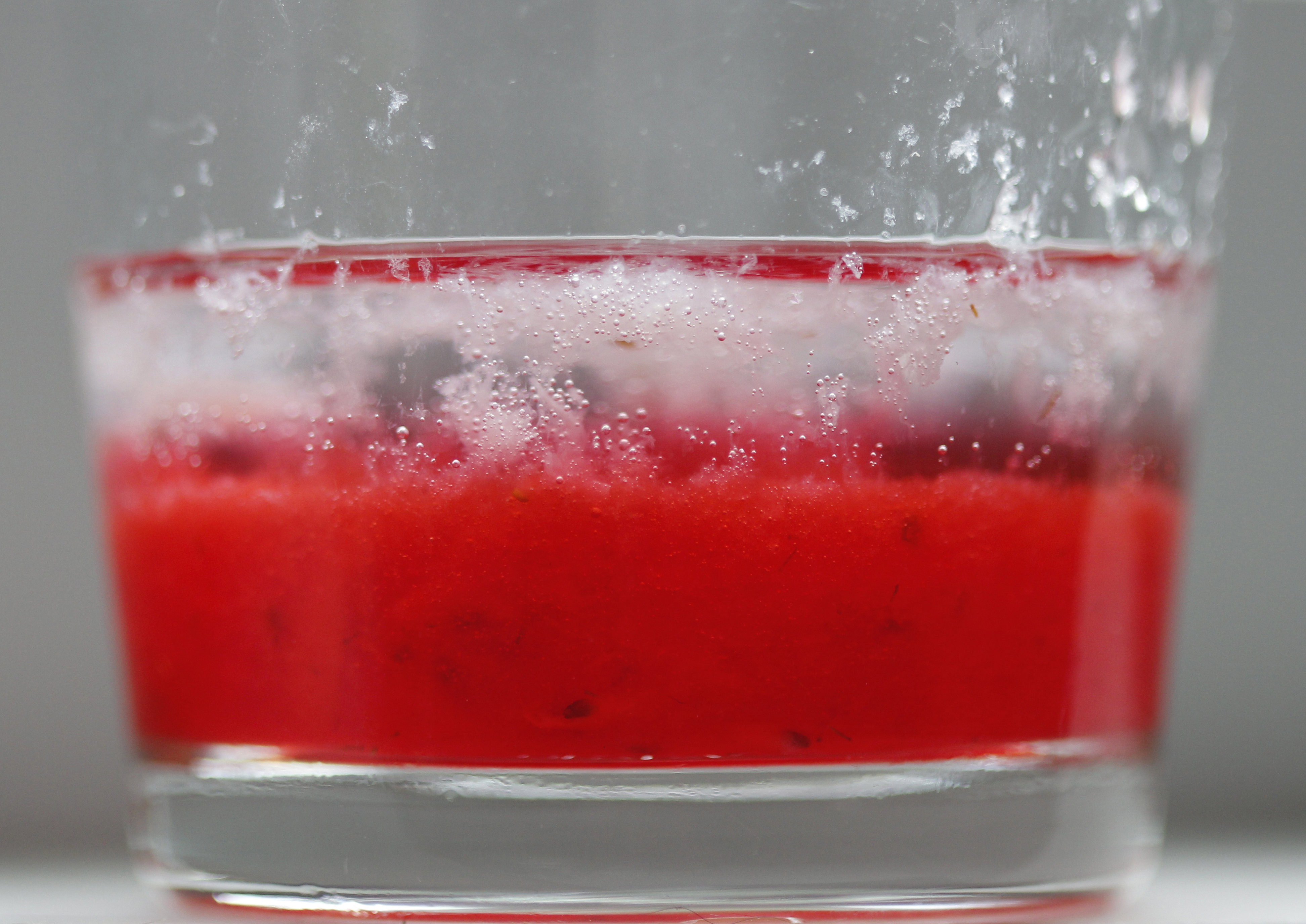 Source: lobestir.com
Source: lobestir.com
The dna is insoluble in the alcohol and will come out of solution and the alcohol serves as a wash to remove the salt previously added. If you are not able to carry out this experiment read through the details below and try to work out why the procedure works in the way it does a few questions have been posted at the end of the method to help you think about this. Dna is the precipitated by mixing with cold ethanol or isopropanol and then centrifuging. When you use a dna test you provide a sample usually either blood or saliva. To extract your dna from saliva you ll need to create a mouth rinse first.
 Source: m.youtube.com
Source: m.youtube.com
Breaking cells open to release the dna. The dna is insoluble in the alcohol and will come out of solution and the alcohol serves as a wash to remove the salt previously added. If you are not able to carry out this experiment read through the details below and try to work out why the procedure works in the way it does a few questions have been posted at the end of the method to help you think about this. You ll be mixing salt into water because salt provides a rough granular texture to help collect cells from your mouth. Dna is the precipitated by mixing with cold ethanol or isopropanol and then centrifuging.
 Source: sites.google.com
Source: sites.google.com
You ll be mixing salt into water because salt provides a rough granular texture to help collect cells from your mouth. The positively charged sodium ions in the salt help protect the negatively charged phosphate groups that run along the backbone of the dna. The cells in a sample are separated from each other often by a physical means such as grinding or vortexing and put into a solution containing salt. It also helps protect the negative phosphate ends of your dna allowing it to precipitate out of the saliva. To extract your dna from saliva you ll need to create a mouth rinse first.
 Source: sciencedirect.com
Source: sciencedirect.com
Breaking cells open to release the dna. Known as dna extraction this is a process by which dna is isolated from the nucleus of cells. Some of the most common dna extraction methods include organic extraction chelex extraction and solid phase extraction. The positively charged sodium ions in the salt help protect the negatively charged phosphate groups that run along the backbone of the dna. After isolation the dna is dissolved in a slightly alkaline buffer usually in a te buffer or in ultra pure water.
 Source: instructables.com
Source: instructables.com
To understand the important principles behind this step it is not essential to do this experiment at this stage or in fact at all. To extract your dna from saliva you ll need to create a mouth rinse first. You are aiming for a homogeneous soupy mixture. The positively charged sodium ions in the salt help protect the negatively charged phosphate groups that run along the backbone of the dna. After the cells have broken open a salt solution such as nacl and a detergent solution containing the compound sds sodiumdodecyl sulfate is added.
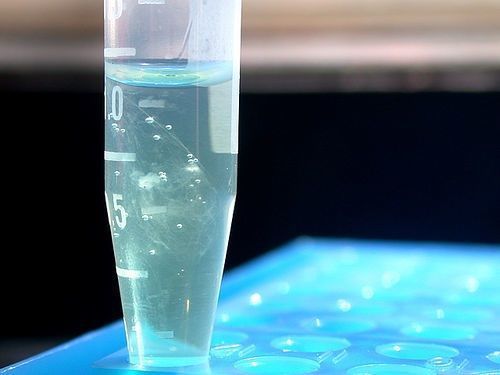 Source: sciencelearn.org.nz
Source: sciencelearn.org.nz
However they can be expensive to use routinely so many labs have their own methods for dna extraction. You ll be mixing salt into water because salt provides a rough granular texture to help collect cells from your mouth. This takes about 15 seconds on high setting. A detergent is. Some of the most common dna extraction methods include organic extraction chelex extraction and solid phase extraction.
 Source: bitesizebio.com
Source: bitesizebio.com
Dna can be extracted from many types of cells. The positively charged sodium ions in the salt help protect the negatively charged phosphate groups that run along the backbone of the dna. It also helps protect the negative phosphate ends of your dna allowing it to precipitate out of the saliva. After isolation the dna is dissolved in a slightly alkaline buffer usually in a te buffer or in ultra pure water. The cells in a sample are separated from each other often by a physical means such as grinding or vortexing and put into a solution containing salt.
 Source: thoughtco.com
Source: thoughtco.com
After the cells have broken open a salt solution such as nacl and a detergent solution containing the compound sds sodiumdodecyl sulfate is added. This takes about 15 seconds on high setting. However they can be expensive to use routinely so many labs have their own methods for dna extraction. Some of the most common dna extraction methods include organic extraction chelex extraction and solid phase extraction. After isolation the dna is dissolved in a slightly alkaline buffer usually in a te buffer or in ultra pure water.
If you find this site convienient, please support us by sharing this posts to your preference social media accounts like Facebook, Instagram and so on or you can also bookmark this blog page with the title how do you extract dna by using Ctrl + D for devices a laptop with a Windows operating system or Command + D for laptops with an Apple operating system. If you use a smartphone, you can also use the drawer menu of the browser you are using. Whether it’s a Windows, Mac, iOS or Android operating system, you will still be able to bookmark this website.

